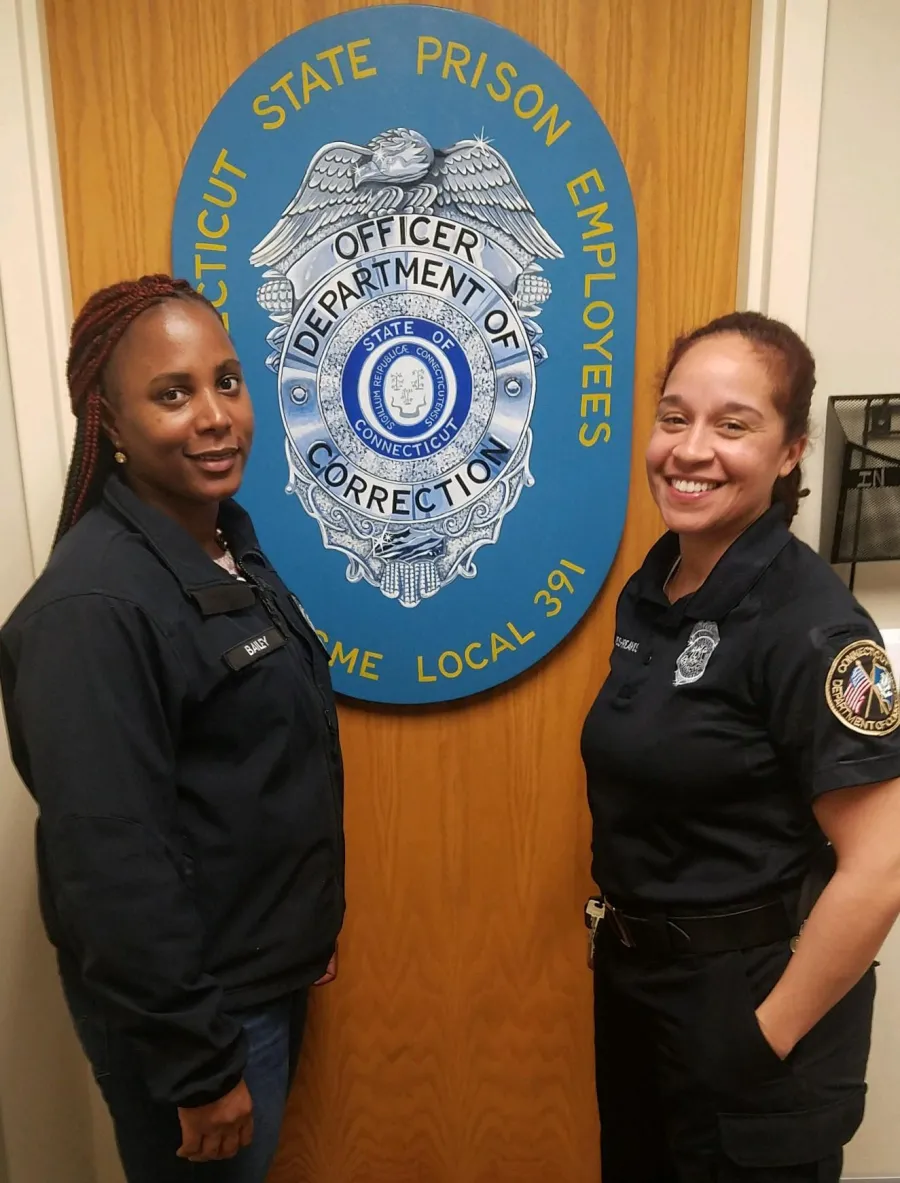Fighting COVID-19 Pandemic in State Prisons

As front line employees in the Connecticut prison system, Sherine Bailey and Aimmee Reyes-Greaves of AFSCME Local 391 (State NP-4 Department of Correction Bargaining Unit) are dealing with a special set of challenges posed by the coronavirus pandemic.
A prison is among the dangerous settings for the coronavirus to spread. Close confines, stringent security measures and the near impossibility of maintaining social distance require a special brand of vigilance.
“Keeping myself and my co-workers safe is my top priority,” said Bailey, a correctional officer at Carl Robinson Correctional Institution in Enfield, which houses 1,336 inmates and has 311 staff members.
Reyes-Greaves, who works industries supervisor at Osborn Correctional Institution in Somers, shares that heightened sense of vigilance.
“The anxieties are higher, but it makes us more effective,” she said. “We’re not only tackling our own duties, but making sure everybody if safe—inmates and staff.” Osborn houses 1265 inmates and has 426 staff members.
While the Department of Correction has begun to put protocols in place, including a ban on visitors, more needs to be done to maintain occupational safety and health within the prison system.
Local 391, along with Local 387 and 1565 of the AFSCME NP-4 Corrections Bargaining Unit, which represents more than 4,000 prison employees across Connecticut, are pushing for a “boost up” in protective equipment and cleaning supplies. The unions are also monitoring the effectiveness of policies and procedures implemented by the agency to deal with the pandemic.
“Everybody is concerned. This is a problem across the country,” Reyes-Greaves added. “Things are changing day by day. It’s hard not to be afraid of the unknown. We’re doing our best.”
Having young children only adds to their heightened sense of precaution as the two women carefully navigate between the outside world and the prison walls.
“Keeping my daughter safe is my number one concern [outside the prison],” Bailey said. “We all have a home family and a work family. The DOC is our work family. We look out for each other.”
While the facilities where Bailey and Reyes-Greaves work have not yet reported any cases among officers or inmates, they both know that once a virus enters the prison, it will spread rapidly. So they’re doing everything they can to protect themselves.
Reyes-Greaves, whose job entails contact with staff and offenders as well as the outside world, described it as an “elevated cautiousness keeping us wired.”
Working in the prison system is a tough and thankless job under normal circumstances, but COVID-19 poses new and unforeseen risks. AFSCME members like Bailey and Reyes-Greaves are doing everything in their power to protect staff and offenders, from controlling movements and gatherings to washing their hands and wiping down surfaces more frequently.
“We’re essential employees,” Bailey observed. “It’s time for us to play our part. There’s no turning back now.”
